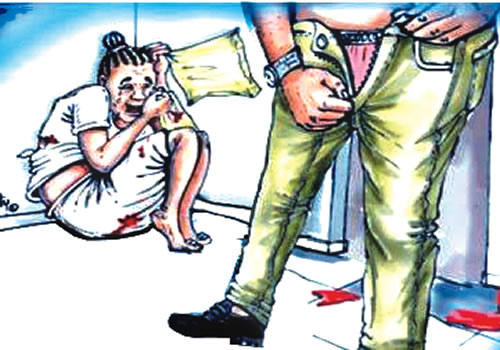The role of government in any polity is primarily the protection of her citizens. This is a moral duty accorded legal cloak by the Constitution of the Federal Republic of Nigeria, 1999 (as amended). Consequently, government is obliged to take reasonable legislative and other measures within its available resources to achieve the progressive realisation of a decent standard of living for Nigerians. Similarly, government is to make provision for adequate legal frame work for protection of women, children and young persons, as vulnerable groups.
Whether the government is living up to Nigerians’ expectations is a query better appreciated objectively; though many will rather have this answered from the subjective point of view. As though the economic woes bedeviling our polity is not enough, with many Christian families not looking forward to Christmas, the Niger Delta militants are threatening to ground a recession-ridden economy. The indelible marks of this, as tribal marks, can never be erased by time, since casualties have already been recorded. Some have dropped out of school, some have lost their jobs, some have resorted to crime, some divorced, some bereaved, some lost, yet awaiting when the things that fell apart will take shape.
Coupled with the foregoing, the plight of many since the Boko Haram insurgency reared its ugly head has remained a tale of ‘cry your own cry.’ A disturbing news is the show of shame of some groups benefiting from the unfortunate onslaught of the Boko Haram terrorists that has led to the displacement of many by posing as intermediaries receiving aids and grants on behalf of victims of the insurgency, but diverting same for personal use. But more worrisome is the revelation by the Human Rights Watch, a non-governmental organisation in July, 2016. Human Rights Watch documented sexual abuse, including rape and exploitation of females living in seven internally displaced persons (IDP) camps in Maiduguri, the Borno State capital.
This raises many legal and ethical issues. Moreover, it confirms concerns that women in our polity may continue to be subjected to unequal treatment when compared to the male folks. Hence, the clamour for the passage of “Gender Parity and Prohibition of Violence Against Women Bill” into law may not be totally misplaced in view of the prevalent social pressures on females. Despite the meager resources for sustenance in IDP camps and appalling standard of living reminiscent of the slave trade, these camps are fast turning into baby factories, with increasing population daily. While we are celebrating the untimely rescue of some Chibok girls, why create another set of Chibok girls in IDP camps? The latter are worse-off since they are being abused by their supposed guardians.
Asides the penalty prescribed for professional misconduct by the extant laws regulating the officers found culpable, the Child Rights Act and Violence Against Persons Prohibition Act should be applied where appropriate. The Violence Against Persons Prohibition Act (VAPP) was passed into law in May, 2015 as an improvement on the penal and criminal code in relation to violence. It makes provision for compensation to victims as well as the protection of their rights, prohibit all forms of violence, including physical, sexual, psychological, domestic, harmful traditional practices, discrimination against persons and provides maximum protection and effective remedies for victims and punishment of offenders. Sadly by virtue of Section 47 of the Act, this law has limited application to the Federal Capital Territory, Abuja only.
Though the Borno Police Command recently disclosed that it had deployed 100 female police personnel to Internally Displaced Persons (IDP) camps in the state, one wonders if these officers can be trusted not to shield their colleagues. Hence, independent counsellors and observers would have been a safer alternative. The rights of children to survival, growth, protection and effective participation in the society must never be undermined. We must never neglect the welfare of these vulnerable individuals who are victims of circumstances considering the enormity of violations perpetrated against the womenfolk.
There is an urgent need to make adequate provision for resettlement/after care programmes to secure the reintegration of victims into the society. Moreso, preventive measures are desireable to avoid a reoccurrence. A framework for sustained and coordinated ways for the country as a whole to combat this menace is required. Furthermore, there is an overwhelming need for training of handlers of IDPs. Also, there is need for more public awareness campaign on the rights of the child, particularly the girl child.
*Ogunjobi, a lawyer, lives in Lagos.
WATCH TOP VIDEOS FROM NIGERIAN TRIBUNE TV
- Relationship Hangout: Public vs Private Proposals – Which Truly Wins in Love?
- “No” Is a Complete Sentence: Why You Should Stop Feeling Guilty
- Relationship Hangout: Friendship Talk 2025 – How to Be a Good Friend & Big Questions on Friendship
- Police Overpower Armed Robbers in Ibadan After Fierce Struggle






